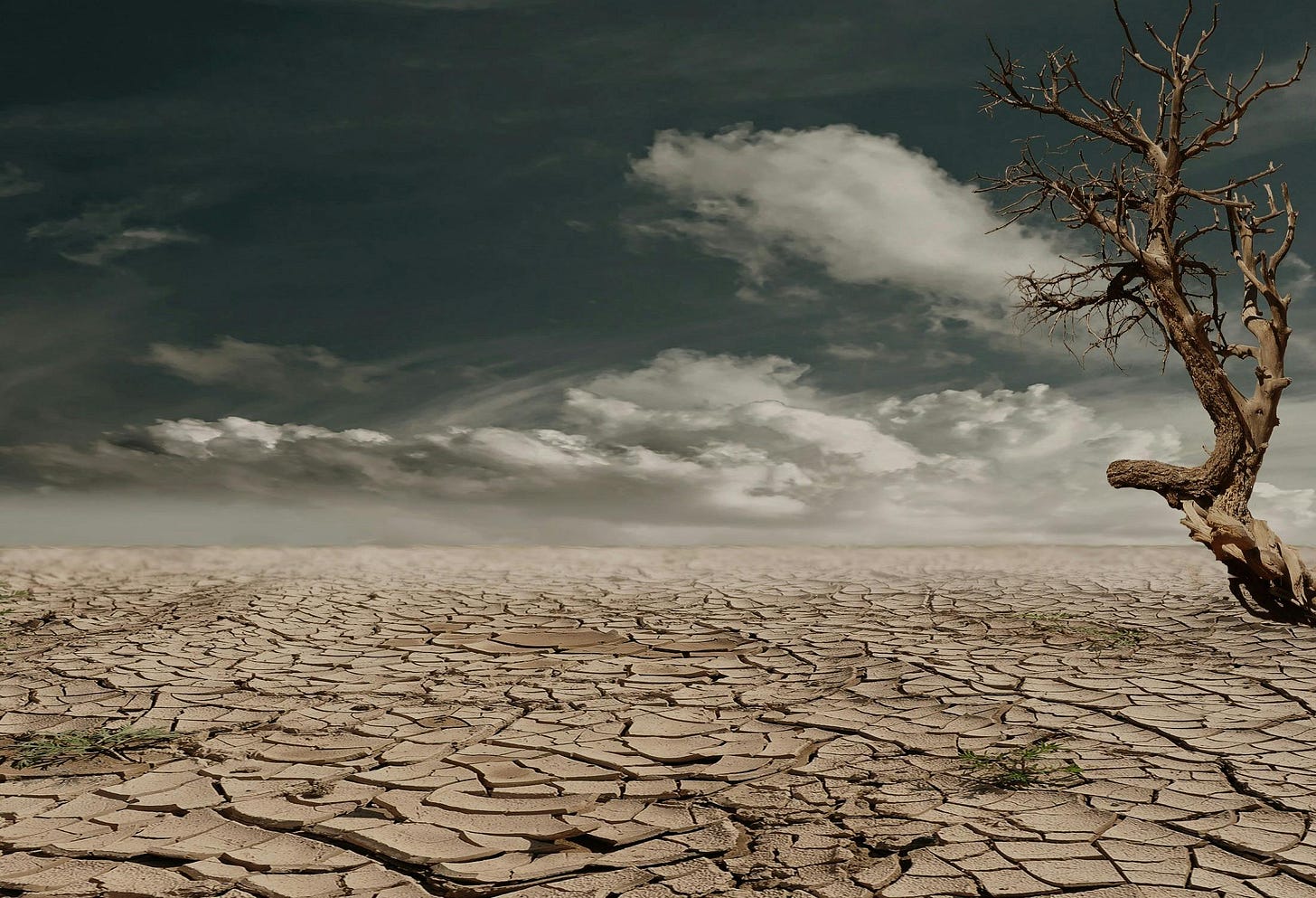Oxford Professor Warns: Animal Farming Is Driving Global Environmental Collapse
Climate Crisis
‘‘Animal agriculture drives four critical planetary boundary breaches, including biodiversity loss and water scarcity. Oxford Professor Paul Behrens highlights its inefficiency, with up to 97 percent of calories wasted. Shifting to plant-rich diets is a key solution to ensure a sustainable and livable planet.’’
The role of animal agriculture in driving the climate crisis has been a topic of increasing concern. In a recent presentation at the Oxford Martin School, Professor Paul Behrens provided a sobering analysis of the environmental damage caused by the global food system. His findings highlight the urgency of rethinking how we produce and consume food, particularly animal products.
Behrens explained that humanity is exceeding six of nine planetary boundaries, which are thresholds that define a safe operating space for our planet. These boundaries include novel entities, climate change, biosphere integrity, land system change, freshwater use, and biogeochemical flows. While fossil fuel use is the main driver of climate change, Behrens identified animal agriculture as the primary culprit behind the breaches of four critical boundaries: biosphere integrity, land system change, freshwater use, and biogeochemical flows.
The Inefficiency of Animal Agriculture
A significant factor contributing to the environmental impact of animal agriculture is its inefficiency. Behrens pointed out that converting plants into animal products wastes a staggering 80 to 97 percent of the calories initially present in the crops. To produce one kilogram of beef, for instance, a cow must consume 25 kilograms of animal feed. Sheep require 15 kilograms, pigs 6.4 kilograms, and chickens 3.3 kilograms—more than their weight at slaughter. This inefficiency means that farmed animals consume over a third of the world’s crop calories but provide only 18 percent of the calories humans consume.
Moreover, animal farming monopolizes 80 percent of agricultural land worldwide. This land is used both for grazing animals and growing feed crops, leaving little room for biodiversity and exacerbating habitat destruction. The strain on freshwater resources is also significant, as vast quantities of water are required for raising animals and growing their feed.
Exceeding Planetary Boundaries
Each of the four boundaries linked to animal agriculture paints a grim picture:
Biosphere Integrity: The loss of biodiversity is directly tied to habitat destruction caused by agricultural expansion. Farming animals displaces native species and fragments ecosystems, pushing many species toward extinction.
Land System Change: The conversion of forests and grasslands into agricultural land disrupts natural ecosystems, reducing carbon sequestration and exacerbating climate change.
Freshwater Use: Animal agriculture is one of the largest consumers of freshwater, contributing to water scarcity in many regions.
Biogeochemical Flows: The overuse of nitrogen and phosphorus fertilizers to grow animal feed leads to pollution of waterways, causing dead zones and disrupting aquatic ecosystems.
The Case for Plant-Rich Diets
Transitioning to plant-rich diets presents a major opportunity to mitigate these environmental impacts. Plant-based foods are significantly more efficient in converting resources into calories for human consumption. By shifting away from animal products, we can reduce land use, conserve water, and decrease greenhouse gas emissions. According to Behrens, adopting plant-rich diets is one of the most effective strategies for staying within planetary boundaries.
While systemic changes, such as policy reform and technological innovation, are essential, individual dietary choices also play a critical role. By choosing plant-based foods, individuals can contribute to reducing the demand for resource-intensive animal products, helping to alleviate pressure on the planet.
A Call to Action
The evidence presented by Behrens underscores the urgent need for a global transformation in food systems. Policymakers, businesses, and individuals all have a part to play. Governments can incentivize sustainable farming practices and support the development of plant-based alternatives. Companies can invest in innovative food technologies, such as lab-grown meat and plant-based protein. Meanwhile, individuals can make impactful changes by embracing plant-rich diets.
The climate crisis demands bold action, and rethinking animal agriculture is a critical step toward a sustainable future. By addressing the inefficiencies and environmental harms of farming animals, we can work toward a food system that respects planetary boundaries and secures a livable planet for future generations.
Sources:
Get my new booklet ‘‘25 Vegan Myths Debunked!’’
This concise guide is invaluable for anyone curious about veganism, offering evidence-based insights and practical guidance to navigate vegan living confidently. All proceeds benefit the promotion of animal rights worldwide!
Visit Our Amazon Store!
Notice: As an Amazon Associate, we earn a commission from qualifying purchases that help promote animal rights worldwide!
General Resources
Books:
Dominion: The Power of Animals in Nature and in Our Imagination by Matthew Scully
Animal Liberation by Peter Singer
Eating Animals by Jonathan Safran Foer
A Billion Hungry Mouths: Feeding the World Without Consuming the Planet by Colin Tudge
Websites and organizations:
Documentaries:
Articles:
"The Case for Animal Rights" by Tom Regan
‘‘Why We Love Dogs, Eat Pigs, and Wear Cows: An Introduction to Carnism’’ by Melanie Joy
‘‘Animal Rights: The Abolitionist Approach’’ by Gary L. Francione
‘‘Fellow Creatures: Our Obligations to the Other Animals’’ by Christine Korsgaard
Seeds of Compassion: Finding Jesus Christ in a Vegan World by Michael Corthell
Receive a single informative article daily at 12:01 AM by email. Explore my homepage with exciting vegan and plant-based news content and delightful and delicious recipes for additional updates. Stay connected to the vegan world and all it has to offer.
Visit The Vegan Project Global our Facebook page for more vegan outreach and education.
The information on this vegan/plant-based blog is for general informational purposes only. It is not intended as legal, medical, or professional advice. Readers should consult with appropriate professionals for specific advice tailored to their situation. The blog owner is not responsible for any reliance on the information herein.







Post the link to every media FB page, YT podcast focused on the current political crisis, and think outside the vegan box to get this message out.